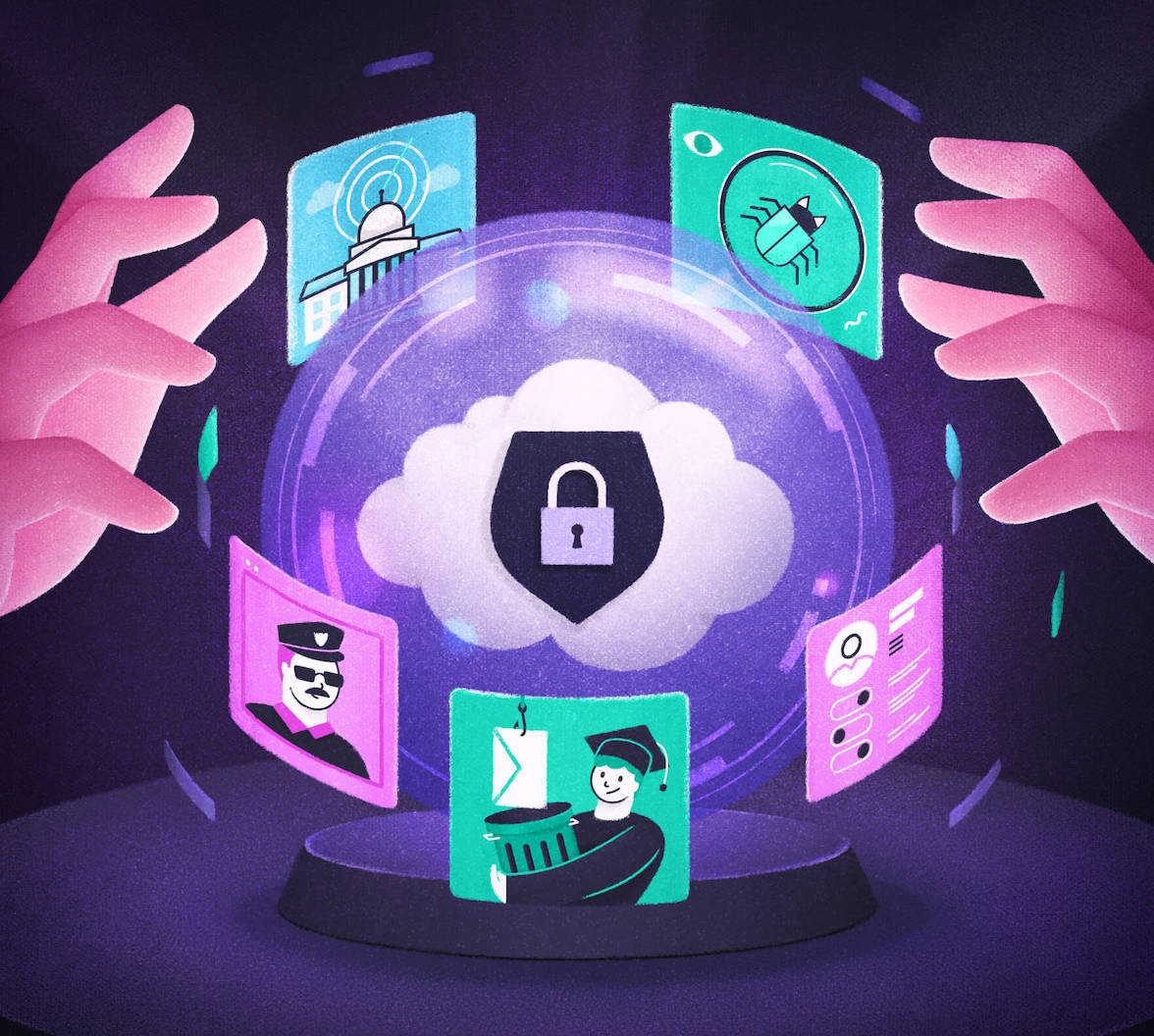Future-Proof Your Service: Key Cybersecurity Predictions You Need to Know
As services face the increasing rate of digital transformation, understanding the progressing landscape of cybersecurity is critical for lasting strength. Forecasts recommend a considerable uptick in AI-driven cyber dangers, along with heightened regulatory analysis and the important change in the direction of No Trust fund Architecture.
Rise of AI-Driven Cyber Dangers

One of one of the most concerning growths is making use of AI in developing deepfakes and phishing plans that are extremely persuading. Cybercriminals can make sound and video material, impersonating executives or trusted people, to manipulate targets right into disclosing sensitive details or licensing illegal deals. Furthermore, AI-driven malware can adjust in real-time to avert discovery by traditional security steps.
Organizations need to identify the urgent need to bolster their cybersecurity frameworks to combat these developing hazards. This consists of investing in advanced threat detection systems, cultivating a society of cybersecurity awareness, and executing durable occurrence feedback strategies. As the landscape of cyber risks transforms, aggressive steps come to be vital for guarding delicate information and preserving organization honesty in a significantly digital world.
Enhanced Focus on Information Personal Privacy
How can organizations efficiently navigate the expanding focus on information personal privacy in today's electronic landscape? As regulatory frameworks evolve and customer expectations increase, services must focus on robust information personal privacy techniques.
Buying staff member training is critical, as personnel recognition straight affects data security. Organizations ought to cultivate a society of privacy, urging employees to comprehend the importance of guarding delicate info. Additionally, leveraging technology to boost data safety and security is crucial. Implementing advanced file encryption techniques and safe data storage space services can dramatically alleviate risks connected with unauthorized access.
Cooperation with legal and IT teams is essential to align data privacy campaigns with business goals. Organizations ought to additionally involve with stakeholders, consisting of customers, to connect their dedication to information personal privacy transparently. By proactively addressing data personal privacy worries, companies can develop trust fund and enhance their credibility, eventually adding to long-lasting success in a progressively scrutinized digital environment.
The Change to Absolutely No Trust Style
In reaction to the advancing hazard landscape, companies are increasingly taking on Absolutely no Depend on Style (ZTA) as an essential cybersecurity strategy. This technique is asserted on the principle of "never ever trust, always confirm," which mandates continual verification of individual identities, tools, and data, despite their place within or outside the network boundary.
Transitioning to ZTA entails carrying out identification and access management (IAM) solutions, micro-segmentation, and least-privilege accessibility controls. By granularly controlling access to sources, companies can alleviate the threat of insider dangers and lessen the influence of exterior violations. Moreover, ZTA incorporates durable tracking and analytics capabilities, allowing companies to detect and respond to abnormalities in real-time.

The shift to ZTA is likewise fueled by the enhancing fostering of cloud services and remote work, which have expanded the attack surface area (7 Cybersecurity Predictions for 2025). Conventional perimeter-based protection versions are insufficient in this new landscape, making ZTA a much more resilient and flexible framework
As cyber hazards remain to expand in class, the adoption of Absolutely no Depend on concepts will certainly be important for companies seeking to safeguard their possessions and preserve regulatory conformity while making certain company connection in an unpredictable atmosphere.
Regulatory Modifications imminent

Upcoming guidelines are expected to deal with a variety of problems, including data privacy, violation notice, and incident feedback methods. The General Data Security Policy (GDPR) in Europe has established a precedent, and similar structures are arising in other areas, such as the USA with the recommended federal personal privacy laws. These policies commonly impose stringent charges for non-compliance, stressing the need for organizations to prioritize their why not try this out cybersecurity actions.
Furthermore, sectors such as money, health care, and critical infrastructure are likely to go to website deal with more rigid needs, showing the sensitive nature of the data they take care of. Conformity will certainly not merely be a legal responsibility yet a critical component of structure trust fund with clients and stakeholders. Organizations must remain in advance of these adjustments, incorporating governing needs right into their cybersecurity approaches to make certain durability and safeguard their properties successfully.
Significance of Cybersecurity Training
Why is cybersecurity training a critical element of an organization's defense strategy? In a period where cyber hazards are significantly advanced, companies need to acknowledge that their staff members are frequently the initial line of defense. Reliable cybersecurity training outfits staff with the understanding to identify potential dangers, such as phishing strikes, malware, and social engineering methods.
By fostering a culture of safety and security awareness, organizations can significantly lower the risk of human error, which is a leading source of data breaches. Normal training sessions make certain that employees remain informed regarding the current risks and ideal techniques, consequently enhancing their capability to react appropriately to events.
Moreover, cybersecurity training promotes conformity with governing needs, lowering the danger of legal consequences and financial charges. It additionally encourages workers to take possession of their duty in the organization's safety and security framework, resulting in a proactive instead of reactive method to cybersecurity.
Verdict
To conclude, the evolving landscape of cybersecurity demands aggressive procedures to address arising risks. The increase of AI-driven attacks, paired with enhanced data personal privacy issues and the transition to Zero Count on Style, requires a thorough method to protection. Organizations should continue to be alert in adapting to regulatory changes while focusing on cybersecurity training for personnel (Deepfake Social Resources Engineering Attacks). Stressing these methods will certainly not just improve business durability however additionally safeguard sensitive details against a significantly innovative array of cyber threats.